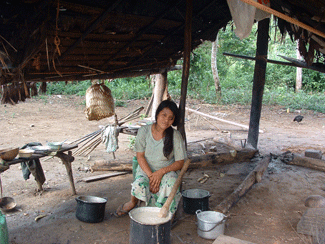Economic development and local ecological knowledge: A deadlock?

Despite the growing interest in the topic, there has been little quantitative research about the causes and rate of acquisition and loss of local ecological knowledge. Some researchers have linked the loss of local ecological knowledge to the expansion of the market economy, others have found persistence in local ecological knowledge despite large socio-economic changes, and still others have found that integration into the market economy through an economic activity based in the natural environment could accelerate the acquisition of local ecological knowledge. The debate matters for policy-making because if integration to the market erodes local knowledge, there would be no possibility of simultaneously achieving conservation of local knowledge and economic development. In contrast, if integration to the market economy does not affect or does not always affect local knowledge, then some forms of market incorporation could develop without eroding local ecological knowledge.
In this article we test how various forms of integration to the market economy affect local ecological knowledge drawing on information from 476 Tsimane'-a foraging-horticultural society in the Bolivian Amazon. We proxy local ecological knowledge with ethnobotanical knowledge. We use a new way of measuring ethnobotanical knowledge that stresses skills that draw on ethnobotanical knowledge, and compare results with standard measures of ethnobotanical knowledge that stress passive knowledge. We find that only some forms of integration to the market economy, namely activities that take individuals out of their culture and environment, are associated with less local ecological knowledge.
References
Reyes-Garcia, Victoria; Vadez, Vincent; Huanca, Tomas; Leonard, William R.; McDade, Thomas. "Economic development and local ecological knowledge: A deadlock? Quantitative research from a native Amazonian society". HUMAN ECOLOGY, 35 (3): 371-377 JUN 2007.

